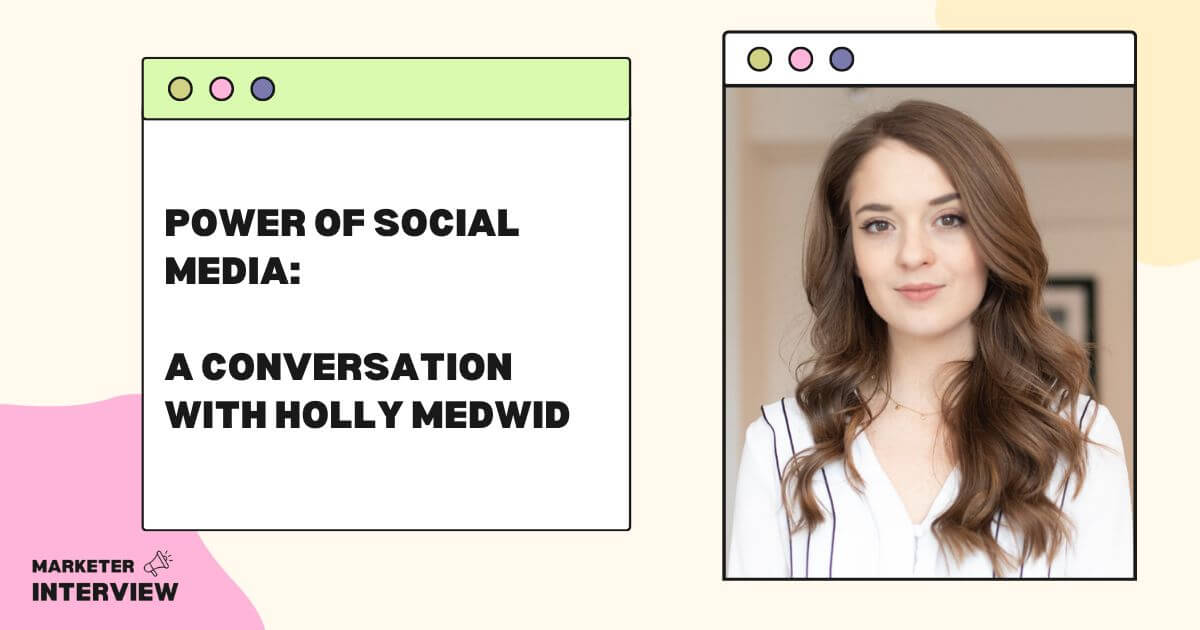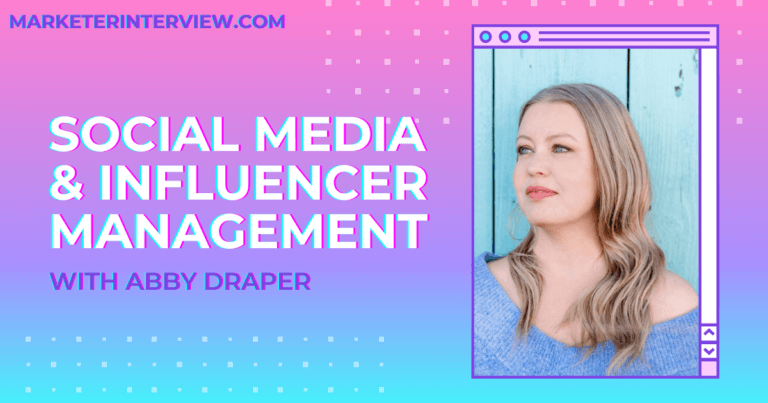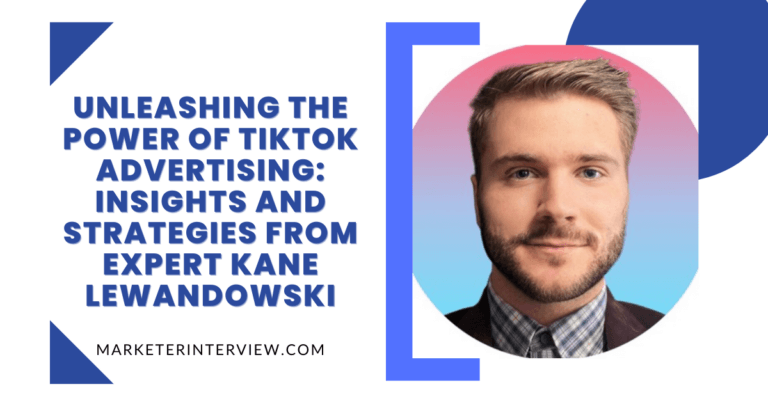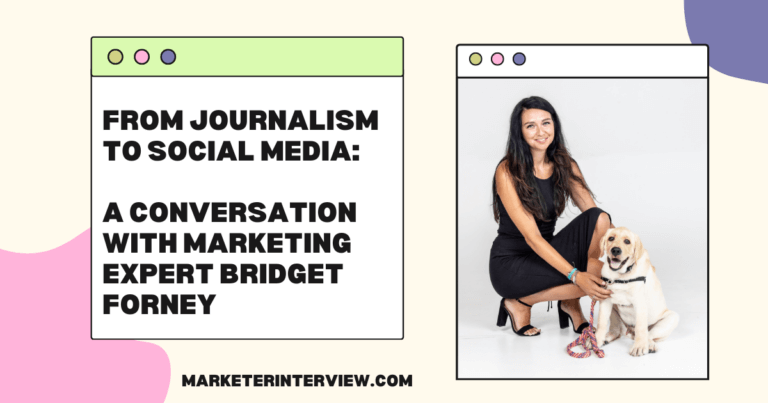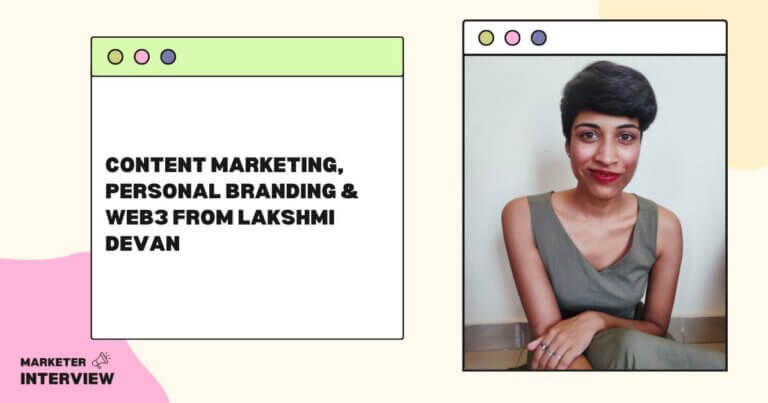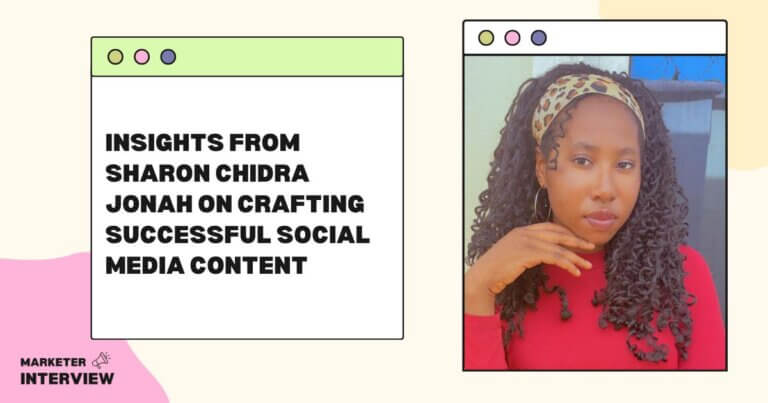Power of Social Media: A Conversation with Holly Medwid
Welcome to Marketer Interview, the go-to blog for insights from top marketers in the industry.
In today’s interview, we have the pleasure of speaking with Holly Medwid, the CEO of Monarch Social Media.
With her strong digital marketing and communication background, Holly’s journey from digital strategist to founding her social media agency during the pandemic is inspiring and insightful.
Let’s jump into the interview and discover Holly’s expertise, career trajectory, and the tools she utilizes to excel in her field.
Contents
- 1 Can you tell us about your journey into the field of marketing and what initially drew you to it?
- 2 How did your experience as a digital strategist shape your decision to start your social media agency during the pandemic?
- 3 Could you share some key insights or lessons you’ve learned about effective social media strategies?
- 4 As a CEO, how do you balance leadership responsibilities with staying current on social media trends and innovations?
- 5 What role do you believe social media plays in the success of businesses, particularly in the tech industry?
- 6 Could you share a challenging project you’ve worked on and how you overcame it using your social media expertise?
- 7 What are the essential qualities a social media manager should possess to excel in their role?
- 8 How do you approach measuring your clients’ ROI (Return on Investment) of social media campaigns?
- 9 Are there any specific tools or software that you find indispensable in your work as a social media professional?
- 10 What advice would you give to aspiring marketers who want to make an impact in the social media realm?
- 11 Lastly, what exciting developments or trends do you foresee in the future of social media marketing, and how do you plan to adapt?
Can you tell us about your journey into the field of marketing and what initially drew you to it?
I ended up in marketing by fluke.
Over ten years ago, I was going to school for creative writing, intending to pursue a career as a novelist. To practice the craft of writing, I started a blog where I wrote about city life, fashion, and my favorite Toronto destinations.
To drive traffic to my blog, I utilized social media, which attracted the attention of a directory for the Toronto PATH. They asked me if I wanted a job as their social media manager. I said yes, and began managing their social media while attending school.
One day in class, I was writing tweets, and my professor called me out, saying, “Holly, if you don’t pay attention in class, you’re never going to get paid as a writer.” As I closed my laptop, I looked him dead in the eye and replied, “I’m already getting paid to write.”
I left University after that semester and began my journey into the world of Marketing. Since then, I’ve held multiple positions as a Marketing Manager, Digital Strategist, and Head of Growth Marketing.
I track my time like it’s a religion to understand better where I need to optimize or find processes to simplify tasks. The world of digital marketing moves fast, and when you can be strategic with your time, you become very good at the job.
By the end of 2020, I realized I had given away over $30,000 of free consulting to business owners in my off-time around how to use social media to keep their businesses alive.
At the same time, my family purchased a wild rice processing plant in Northern Manitoba to bring the highest quality of wild rice to a retail market. I knew my help was needed and that I couldn’t focus on the growth of one startup while putting the pieces into place to build a brand on the side. It was two apparent opportunities that I couldn’t ignore any longer.
I understand social media in all its systems, even though it changes constantly. I’m very purpose-driven and knew I could help business owners succeed on social media during a difficult time, but I was still hesitant.
Social media can be very unhealthy for a job, especially if you have an employer or client who doesn’t understand the reality of the job or what it takes to drive results while maintaining your sanity.
Far too often, social media professionals leave the industry due to toxic bosses or employers with unfair and unrealistic work expectations. Social media never sleeps, but humans need to. It’s the reason social media managers burn out all too often.
At that moment, it clicked. I could create a company that offers actual work/life balance within the social media industry while proving that you can still be profitable. Two years later, we’re a team of five and growing with incredible clients that respect boundaries while enjoying the success of the strategies and management we run on their behalf.
1) You’ll never be an expert, so embrace the practice of constant learning.
Social media platforms change every single day. 90% of what I learned in social media was directly on the internet for free. Don’t waste your money going to University for social media because they can’t create courses fast enough to keep the information up to date.
2) As much as social media changes, one thing has stayed the same: The importance of authenticity and relationship building.
You’re doing it wrong if you try to sell on social media. Social media users want entertainment, to learn something, or engage in niche communities that revolve around their interests. Keyword: Communities. Focus on creating relationships with other social media users and creating content that they will find interesting and engaging.
3) Stop focusing on vanity metrics like followers if your goal is to increase your revenue.
Focus on connecting with the people that are your ideal customers through discovery and engagement strategies. While 10,000 followers may give you a brief ego boost, it won’t impact your bottom line.
Focus on the 1000 people actively engaging with and consuming your content that will buy your products and services. Followers will naturally grow with a good strategy and consistent management, but that should never be the number one KPI.
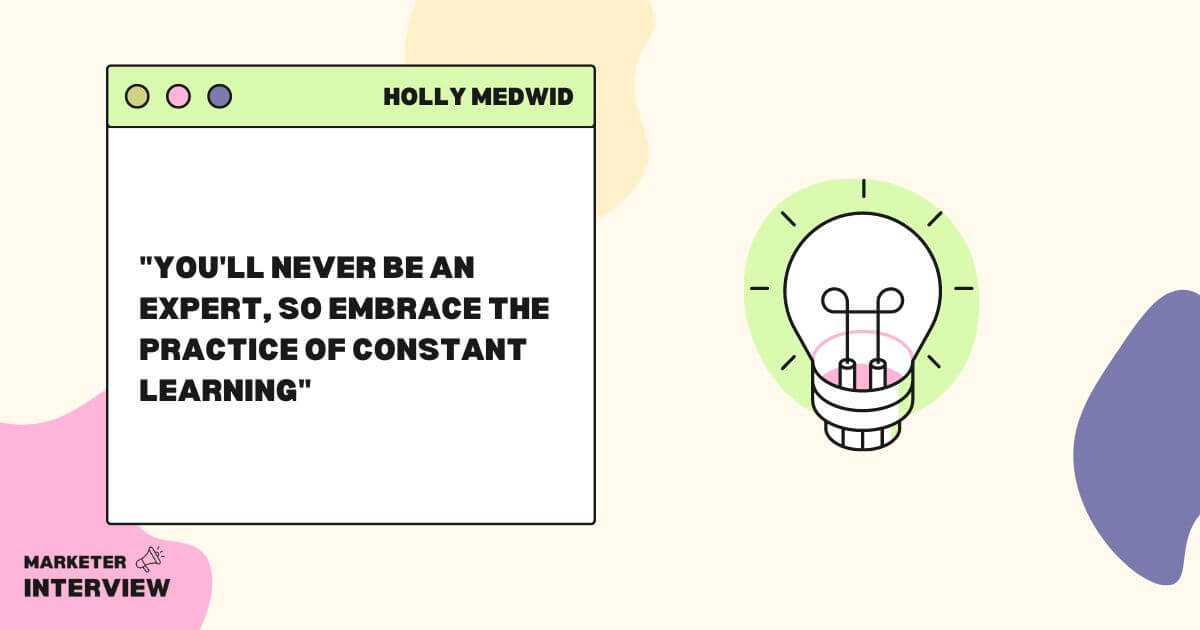
I hire with intention, and my team always comes first. When you’ve had the misfortune of experiencing bad leadership, you learn very quickly what not to do. It’s a responsibility I don’t take lightly.
A good leader does not expect everyone else to do the work or take the blame when something goes wrong. A good leader works alongside their team and actively does the most to understand their roles and responsibilities, guiding and giving feedback when necessary.
I’ve hired the people that are the best at what they do. They’re individuals who embrace the concept of constant learning and bring their findings to the rest of the team so we can increase our knowledge and skill set together while staying up-to-date on every innovation and trend. Our Slack channel contains examples and concepts of what’s new and evolving in the digital world.
A well-managed social media presence helps establish trust and credibility in a social media user discovering a tech brand or business for the first time.
It’s a tool that can educate and inform about your product or service, which influences the consideration stage of a community member before turning them into a client. Once they’re a client, well-managed social media accounts become a customer service channel that keeps clients returning and referring to their colleagues, friends, and family.
Growing Monarch has been my greatest challenge. It’s an ambitious goal that requires consistent revenue.
Using social listening and competitive set analysis, I’ve identified the industries that need social media but have yet to invest in the service. Our strategy at Monarch is to create educational content about succeeding on social media using examples from the industries we’re targeting for clients.
We’ve grown organically steadily through engagement practice, hashtag strategy, and lead generation. We’ve been focused on construction and the trades, but soon we’ll target a niche industry different from the standard type of client you’d expect to invest in social media.
The companies that take advantage of capturing that highly underrepresented space will skyrocket in terms of success online.
- The willingness to constantly learn and self-teach without relying on an established education system to gain that knowledge. In this industry, you learn by doing.
- Attention to detail should go without saying. Social media moves fast, and it’s easy to miss things if you need help identifying and keeping track of all the details.
- The organization is critical for keeping things running smoothly in a strategy. I don’t care which system you use, but you need to find a way of organizing and systemizing the job. If you like processes, this is an excellent industry for you.
- The best social media professionals are the ones that are not social media users. Critical thinking is essential to the job, and if you’re constantly being influenced by content and echo chambers, you won’t be good at this job. The ability to step back and look at the complete picture without bias or being influenced makes you invaluable in social media.
It depends on the type of strategy they’re running. Social media is at the top of the funnel unless you focus on conversion strategy.
Most clients understand that the rest of their funnel must be optimized and effective to influence a purchase decision. Our main KPI is awareness growth, measured in reach and impressions. The average consumer needs to see a brand upwards of 7 times before considering a purchase.
We measure our clients’ engagement rate and conversions to a website on a conversion or growth strategy.
Oh yes. Scheduling software is vital to keep editorial calendars and content approvals organized. At this time, we’re using a platform called Planable.
Analytics software saves us about four days of work through automated data collection. It helps us see what’s working and what’s not in a strategy.
Slack is our communication channel for the internal team, and to communicate with clients, we use a phone software called DialPad. Some prefer to text instead of email, which means sharing feedback with the team can be tricky if it’s coming through to just one number.
There are about seven other pieces of software that keep things running smoothly here at Monarch, but that will take me a while to talk about. We spend a lot on software monthly, but it’s a worthwhile investment.
Social media is not a get-rich-quick scheme.
Too often, we see social media coaches trying to sell courses that promise to show you how to make $10,000 monthly as a social media manager. It’s more complex, and there’s a lot to learn.
Don’t waste your money on these types of courses. Instead, go directly to the platforms to take their FREE courses. You’ll learn by doing, so just get started.
If I had to start again from zero, I’d approach it as a UGC creator to understand how the algorithms work while testing different concepts and strategies. Follow accounts like ours. The Monarch strategy is to give away free education to our community, which will always remain that way.
Better yet, drop a question in our comments if you want advice or direction, and we’ll be more than happy to point you in the right direction. This industry needs more talented creatives.
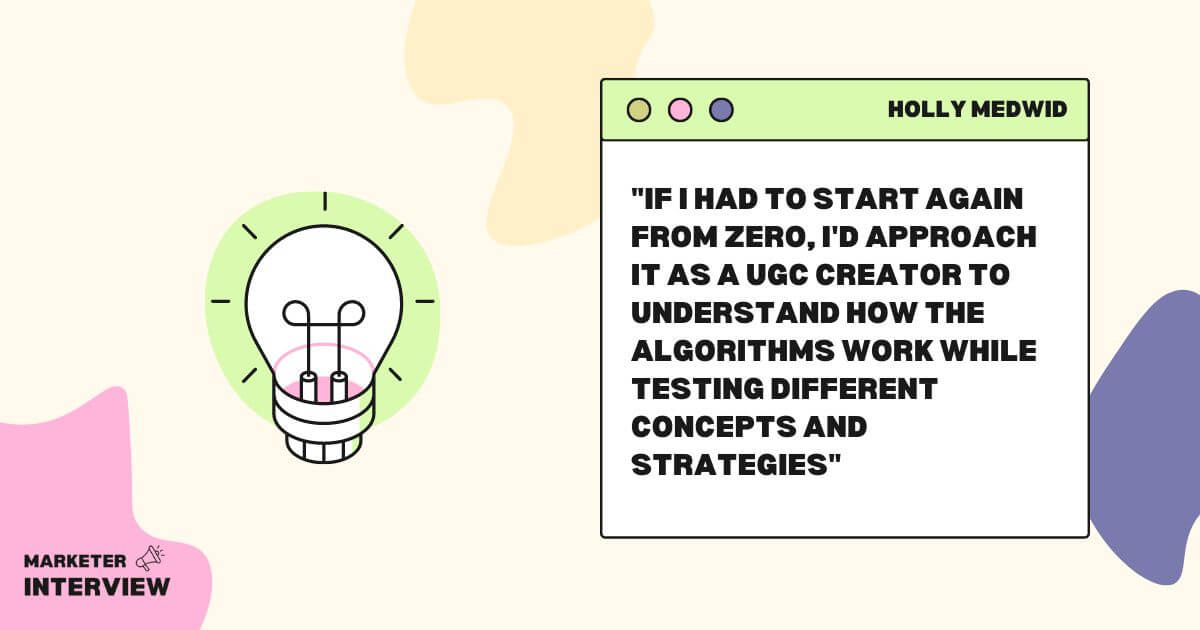
We’re actively embracing and learning how to work with AI. There’s a misconception that AI will take over our jobs, but anyone who has interfaced with programs like ChatGPT will know that’s not the case.
Good social media creates human connections, and artificial intelligence will never be able to have the human experiences that create the understanding of what emotionally appeals to social media users and influences behavior.
AI is a tool, and that’s how we intend to use it. We move 5x faster now than agencies and managers that don’t embrace the technology. I’ll end this with a quote overheard at the Collision Conference that sums it up perfectly. “AI is our generation’s version of a calculator.”
